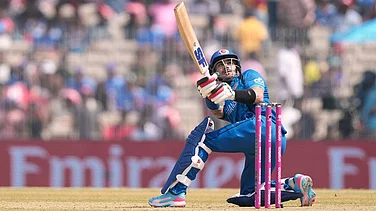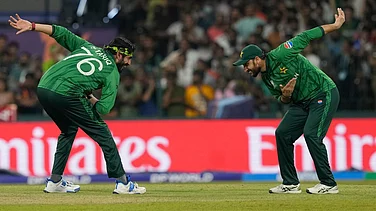England out-batted India in the T20 World Cup semifinal in Adelaide on Thursday. A late surge, courtesy Hardik Pandya and Virat Kohli, took India to a fighting total of 168. But then the English opening pair, of captain Jos Buttler and Alex Hales, produced a brilliant, unbeaten partnership of 170 that took the game away from India. The way England played, it appeared they took the absence of their key players, Mark Wood and Dawid Malan, in their stride and focused on the job at hand.
The six main reasons why India lost. (More Cricket News | Match Scorecard)
Rahul’s early dismissal, average Powerplay: KL Rahul had worked himself into form in the last two games, scoring 50s. It was imperative for him to get some runs on Thursday. He started with a slashed boundary off the very first ball of the match by Ben Stokes. When it seemed that the four would settle Rahul’s nerves a bit, he edged a Chris Woakes climber in the next over to wicketkeeper Buttler. It was a good ball but not a great one and Rahul could have negotiated it better. His shake of the head as he walked back proved that he was disappointed with the shot. Rahul’s departure once again put the pressure on Virat Kohli to deliver, and contributed in India’s average Powerplay (38/1 in 6 overs).
Surya didn’t shine: SKY reportedly got the biggest ovation of all Indian players when he walked out to bat at the Adelaide Oval on Thursday. That showed how much he meant to the team and the fans. Yadav had 225 runs in five matches before the England game, and was India’s main hope along with Kohli. He started well and with characteristic lack of inhibition. But he could have paced his innings better. Trying to wade into the tricky Adil Rashid, he failed to get to the pitch of the ball and holed out to deep cover point. Surya’s departure in just the 12th over meant India’s assault got compromised, which in turn shaved runs off the total.
Rohit settled, then made haste: Before Yadav, it was Rohit Sharma’s dismissal that robbed India of momentum and runs. When the Indian captain smacked Sam Curran for two consecutive boundaries in the 5th over, it seemed he had conquered his inhibition, if any, and decided to cut loose. His second shot off Curran was particularly emphatic, as he stepped down the track and hammered the ball through mid-wicket. Finally, he seemed ready for a big one. But after doing all the hard work, he got hasty for more and his innings was cut short at 27. Off form almost the entire tournament, Sharma has some lonely hours of introspection ahead.
Adil Rashid and the middle overs: India did not have a great Powerplay and the middle overs were not too productive either. Rashid, the wrist spinner known for his ability to keep Kohli quiet, was in his element on Thursday. He conjured up a stunning spell in which he gave away just 20 in four overs and lured Yadav into a mistake. By the time he was done with his overs, India were 80 for three after 13 overs, well behind what they would have wanted.
Lack of a wrist-spinner: One of the points being made on air by commentators was that India could have benefitted from using a wrist spinner. Yuzvendra Chahal was their obvious suggestion. If Rashid could show his tricks on the pitch, Chahal too could have been effective against the marauding English pair of Buttler (80 not out) and Hales (86 not out), who toyed with the Indian attack that included R Ashwin and Axar Patel.
England took it away: Credit where it’s due. The England batsmen won this game more than India lost it. Buttler and Hayes played absolutely dominant knocks. India started with Bhuvaneshwar Kumar who had enjoyed success against Buttler in the past. But the English captain was on top of him from the first over itself. He hit him for three fours and that set the tone for the rest of the innings.


























